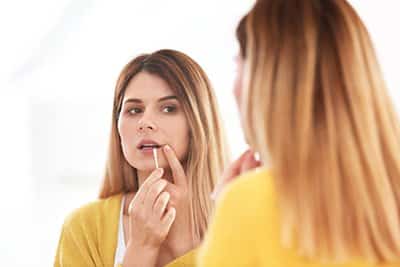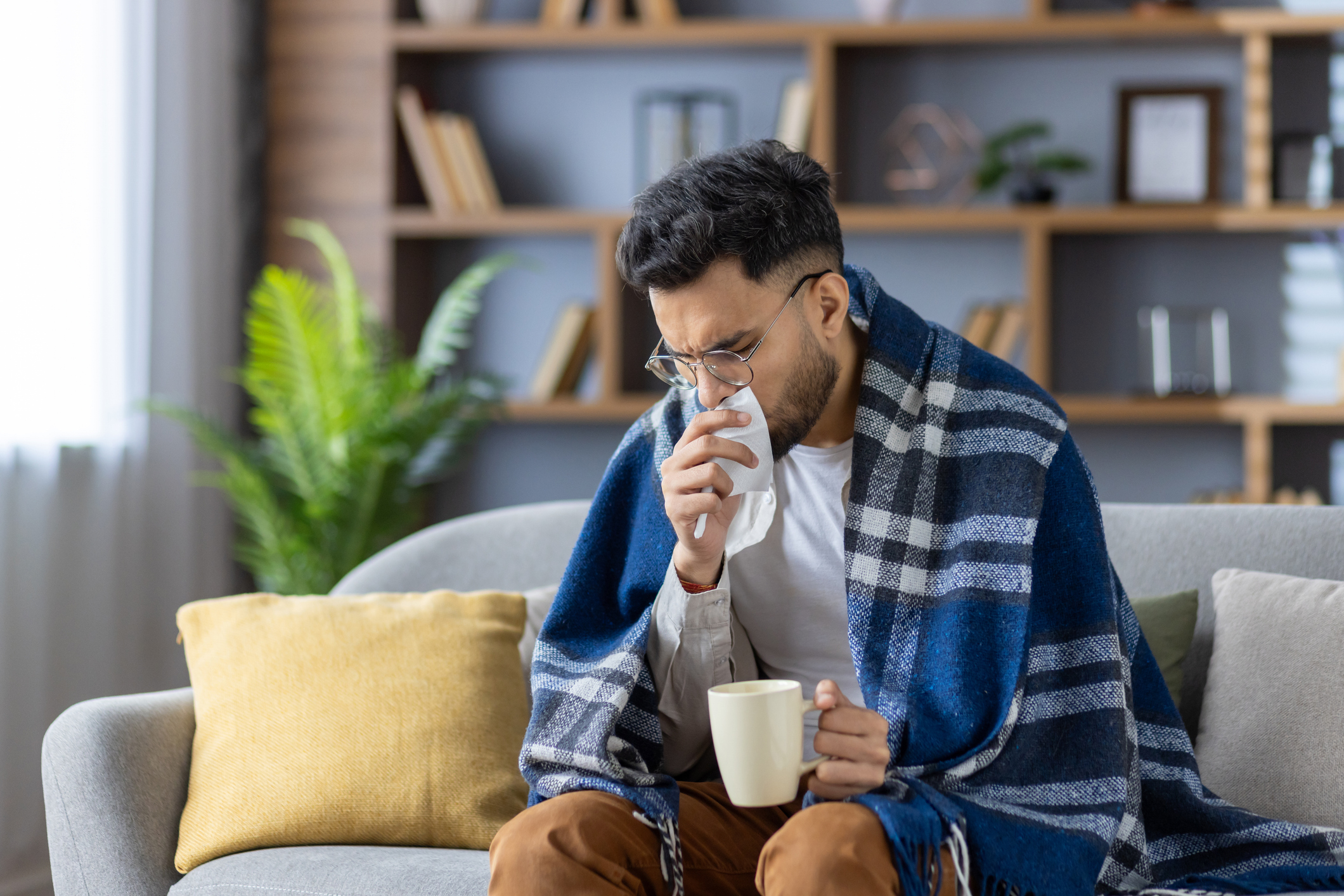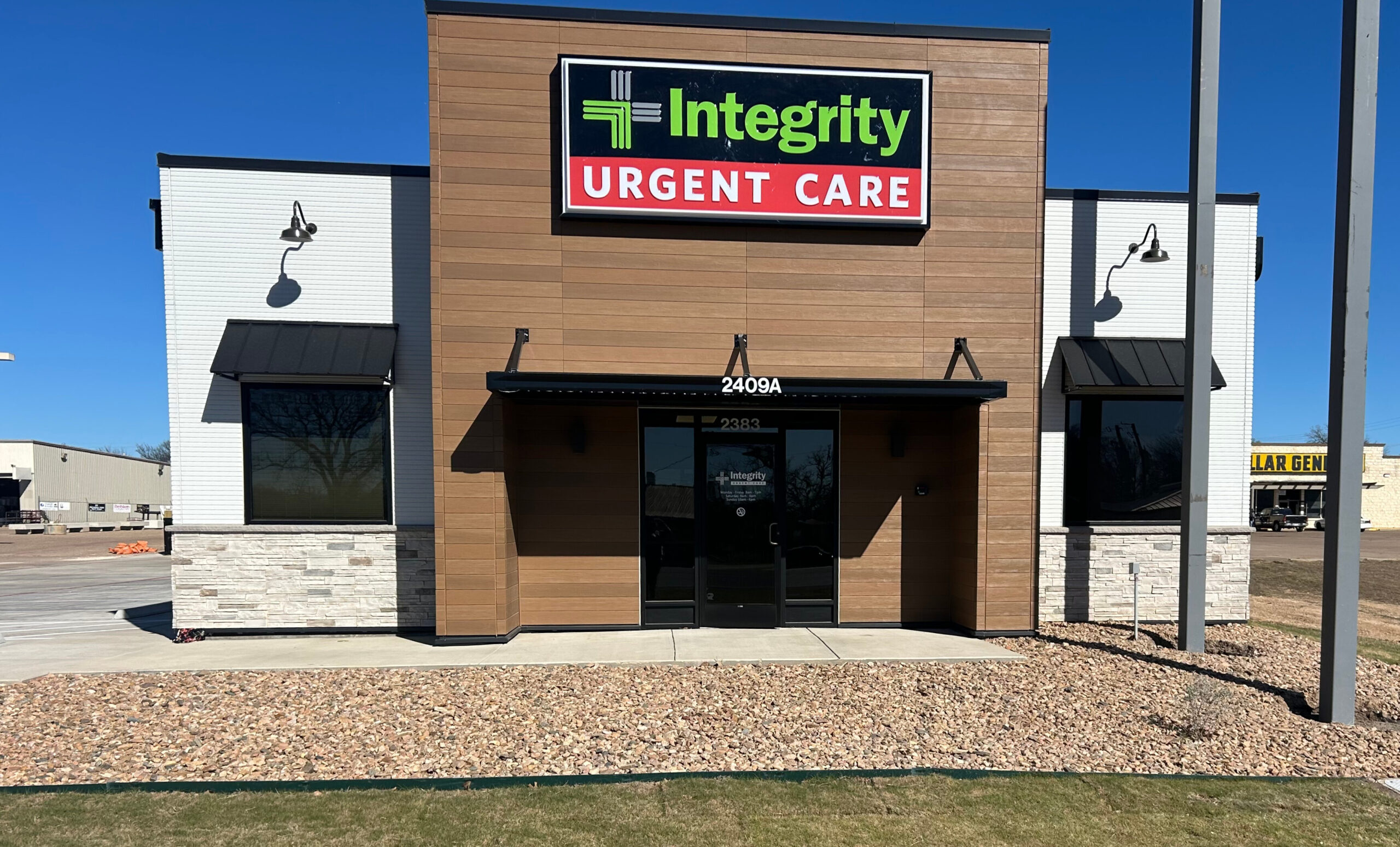Many people – both children and adults – experience sores or blisters in and around their mouth from time to time. Cold sores – also called fever blisters – are a common group of sores caused by the herpes simplex (HSV-1) virus. The tiny, fluid-filled blisters most frequently appear on or around the lips but may also occur inside the mouth or nose. They should not be confused with canker sores, which are not contagious.
Here are some frequently asked questions (FAQs) on this topic:
What causes cold sores?
The herpes simplex (HSV-1) virus is the cause of cold sores. It is related to but not the same virus that causes genital herpes (HSV-2).
How do I get one?
Cold sores are spread from person to person by direct contact, such as kissing. While the cold sore virus is not the same as the one which causes genital herpes, both can be spread by oral sex. Cold sores are contagious, even if no visible blisters are present. Sharing eating utensils, razors, lip balm, and towels can also spread the virus.
What are the symptoms?
A cold sore usually has a few stages as it runs its course.
- Tingling and/or itching. Many people have a “sense” they are about to get a cold sore with initial tingling, itching, or a burning sensation before the blisters erupt.
- Blisters. These small, fluid-filled blisters are often grouped in patches at the border where the lips meet the skin of the face. They may also form in the nose or on open areas on the face such as under the nose and above the mouth.
- Oozing and crusting. As the blisters begin to heal and dry out, they may break open and then form a scab or crust. This may happen more than once as the blisters heal and finally disappear in a couple of weeks, leaving no scar.
Recurrences often occur in the same location. Some people experience other virus-like symptoms, especially with first occurrences such as mild fever, sore throat, muscle aches, etc.
What can I do to prevent them?
Short answer – not much! About 90% of adults worldwide, including those who have never had a visible infection, test positive for evidence of HSV-1. Once a person has had an episode, the virus lies dormant in nerve cells and may re-emerge. Factors which may cause recurrence include: other viral infections or fever (hence the alternate name of fever blister), hormonal changes, stress, fatigue, exposure to sunlight and wind, and changes in the immune system. These “triggers” help to explain why many people often experience an outbreak of cold sores following a cold or the flu, windburn or sunburn, or stressful times. Even the increased irritation of blowing and wiping your nose frequently with a cold or severe allergy season can trigger an eruption.
Here are a few other suggestions to alleviate the discomfort:
- Talk to your doctor about taking antiviral medications if you develop cold sores frequently or are at high risk for complications.
- Other over the counter medications can help alleviate the pain and discomfort associated with the blisters, by numbing, softening the edges or helping to dry the blisters faster. One person who succumbs frequently to cold sores suggested things like Campho-phenique, Blistex, Vaseline, aloe vera, gel, and even ice. Acetaminophen or ibuprofen may also help relieve pain.
- Use ample sunscreen if sunlight seems to trigger occurrences, especially when reflective sunlight is also intense (e.g., skiing or snorkeling). Don’t forget to apply lip balm with high SPF levels.
- Avoid skin-to-skin contact or sharing items when blisters are present.
- Wash hands frequently.
When should I see a doctor?
Cold sores usually heal and disappear completely without scarring within a couple of weeks. Consider seeing your healthcare provider if:
- Your immune system is weakened.
- The cold sores don’t heal within two weeks.
- Symptoms are severe.
- You experience irritation in your eyes.
Integrity Urgent Care is here for all your health and wellness needs at any of our four locations. Appointments are never necessary, and we’re available from 8 am – 8 pm, seven days a week.
Resources:
Gavin ML (reviewer). Cold sores. KidsHealth from Nemours [online]. Last reviewed Feb 2014 [accessed 24 Jan 2019]. https://kidshealth.org/en/kids/cold-sores.html
Mayo Clinic Staff. Cold sore. Mayo Clinic Diseases/Conditions [online]. [accessed 24 Jan 2019]. https://www.mayoclinic.org/diseases-conditions/cold-sore/symptoms-causes/syc-20371017?p=1
US National Library of Medicine. Cold sores. MedlinePlus.gov [online]. Last updated 23 Apr 2018 [accessed 24 Jan 2019]. https://medlineplus.gov/coldsores.htm



